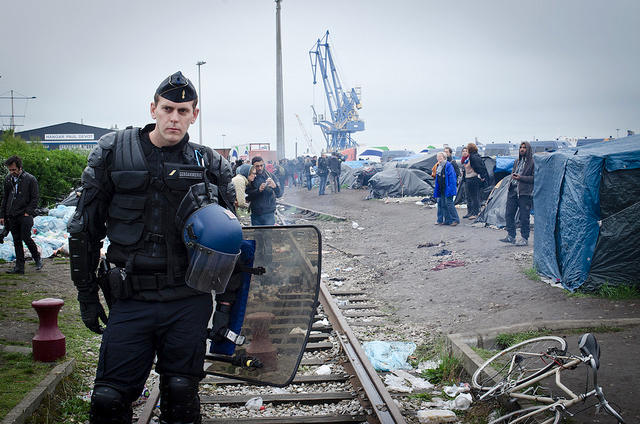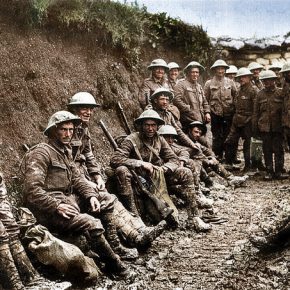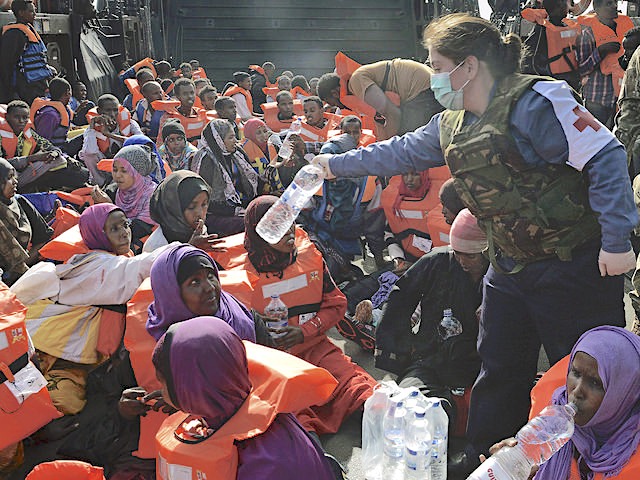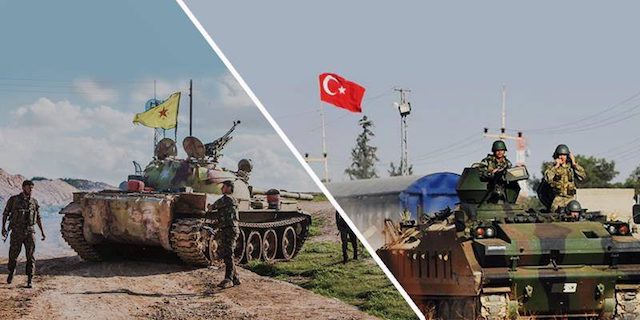On a midsummer night, three young Iranians pushed a small boat out to sea on the French coast a few miles from Calais. It was midnight and there were no guards around to stop them.
Using a small inflatable dinghy and two oars they had bought for 600 euros ($705), the men started a journey into the rough waters of the English Channel on July 18. They were attempting the unimaginable. There is a reason Calais is not known for migrants risking their lives by boat. The waterway is too rough to cross without a motorboat – which is hard to get in France, even for well-connected smugglers.
One of the trio, Saman, a slim 28-year-old university graduate, did not know how to swim. To be on the safe side, the others had bought him what they described as a “cheap Chinese life jacket.” Saman made a quick call to his elderly mother in Iran. “I will call you soon from England,” he told her, before joining the other two men on the boat. They began rowing.
At first, the water seemed calm. There were small waves, but nothing worrisome, especially for Peyman, the eldest of the three. He had spent most of his life in Bandar Anzali, a port city on the Caspian Sea in Iran. “I am the child of the sea,” he said.
The men could see the lights of the English port of Dover shining like bright stars in the clear sky. As they kept rowing, the men thought of nothing but reaching Dover. Soon, the small waves grew taller and more furious. They rowed for one hour without moving far. Their boat began spinning. The harder they rowed, the more they span. The inflatable was quickly filling up with water. Saman removed the water one fistful at a time.
“I thought I was going to die. I saw everyone in my family before me. I said goodbye. I asked my mother to forgive me for any hardship I brought to her,” said Mehran, the third Iranian voyager.
Peyman was the most worried. “I know the sea and its temper. I knew our boat could not face the challenge ahead of us. I could hold on to the boat and save myself. But I was worried about Saman. I felt responsible for his life. We had to go back,” Peyman said.
Calais After the Jungle
Since the late 1990s, Calais has been the final stop for thousands of migrants from Africa, the Middle East and elsewhere hoping to clandestinely enter the U.K. Hiding in trucks or cargo trains, some made it and others did not. Some died trying.
Time and again, the French authorities have tightened the border, destroyed migrant encampments and made every effort to make migrants disappear. But they always returned.
The number of migrants in northern France has ebbed and flowed. Thousands arrived after the Arab Spring uprisings in 2011. The Calais “Jungle,” a makeshift migrant city on the margins of French society, was born, so named by its inhabitants for its squalor.
On October 26, 2016, French authorities bulldozed the Calais Jungle and dispersed thousands of migrants across the country. As in the past, many defied the authorities and returned. Newcomers joined. They made smaller encampments, and waited for an opportunity to leave France for the future with security that they imagined lay across the English Channel.
I conducted research among migrants in Calais in 2003 and returned to the area again in July 2017, where I met the three Iranians from the boat as well as dozens of others resorting to riskier or, if they could pay, more expensive ways to leave France.
A couple of hundred young Africans and a small group of Afghans were dispersed in the woods where the Jungle encampment had once stood. Many had arrived in Calais soon after the closure of the Jungle. Charities fed them and gave them clothes. The migrants rested in the woods during the day and returned to the port at night to take their chances at reaching the U.K.
“None of us have any money to pay the smugglers. We have to make it on our own,” Mohammad, a 32-year-old Ethiopian, told me. Mohammad was bathing in the dirty and algae-covered canal water when we met one sleepy afternoon. “That’s our only way,” he said with a shy smile on his face.
Mohammad and a couple of dozen other young Ethiopians, Eritreans and Somalis spent their days in the park around the canal that goes through the city. They played ball with friends, and dreamed of a future somewhere in England.
When the night cast a shadow over the city, Mohammad and other poorer migrants slowly walked through the streets toward the port. Plastic bags in hand, they looked like ghosts, avoiding eye contact with tourists or inhospitable locals.
Everyone dreamed of sneaking into a parking lot, opening the door of a truck and hiding inside, unsuspected by the police. Most spent the night outside parking lots waiting for an opportunity to get inside. They gazed at the boats and imagined themselves crossing the English Channel.
By daybreak, most of these penniless young men resurfaced from the port area. Fatigued and disappointed, they returned to the woods or the canal to rest and prepare for another night and another attempt.
Mohammad has done this “more than 10 times,” he told me. Once, he hid inside a truck for hours, but was caught by the police and sent away. He saw no choice but to try again. He is in Europe to make a better life for his daughter, he said, showing me her picture on his phone. “Why England?” I asked. “I can speak the language and I have an older brother in London,” he said.
Mohammad and the other African men know they may have to wait months or even years to reach their intended destination. They live in poverty, try to avoid unnecessary confrontation with the police and keep trying.
Leaving by All Means Necessary
The authorities are trying to prevent a new camp forming in Calais and have tightened border security, including building a U.K.-funded 13ft (4m)-high concrete wall around the road that trucks take to the port.
As border controls get tighter, the landscape of clandestine travel across the English Channel appears to be changing. More migrants are heading to nearby Dunkirk. Smugglers are adapting their business models. And more people may resort to desperate measures to reach England – like the three Iranians, who decided that the risk of rowing across the English Channel was worth taking.
When Peyman realized the boat could go no further, he tried turning around, but they were trapped in a current far stronger than the three of them and their boat could handle. They kept spinning. Going forward or back to the French shore no longer seemed possible. Peyman decided to call for help.
Minutes later, a helicopter appeared above the sea with powerful lights illuminating the boat and the waters around it.
Familiar with stormy seas, Peyman tried to move the boat parallel to the shore. After struggling with the waves, the boat escaped the whirlpool that had entrapped it for nearly three hours and moved sideways toward land.
It was nearly daybreak when the boat reached the shore. Five hours after embarking on their journey, the men were exhausted and shivering from the cold and fear. Even the French police were surprised they made it back. “I thought I would be facing three dead men, looking for phone numbers to call your families about your fate,” an Iranian interpreter for the police said.
Saman called his mother. Peyman broke down in tears. “I have to be honest, I cried like a baby. Migration makes you lose your mind. You go mad,” Peyman told me a day later, sitting on the sidewalk near the train station in Calais and puffing on a cigarette.
The next morning, Peyman hopped on a train to Paris and later to Germany. Three days later, I took a bus with Mehran and Saman to Dunkirk. “God saved us this time,” Saman said. They would no longer risk their lives in the sea. The men contacted a Kurdish smuggler who asked them to go to Dunkirk and wait.
The Dunkirk Jungle
Many people know Dunkirk from the recent Christopher Nolan war movie. Not far from the beaches where the largest evacuation of allied forces occurred in World War II, a couple of hundred migrants camped in the woods when I visited in July.
Away from Calais and the penniless Africans and Afghans, a different group of migrants assembled in the woods of Dunkirk. They were Iranians, Iraqi Kurds, Pakistanis and a few Afghans and Syrians.
Unlike the Africans and other poor migrants, many could purchase the services of human smugglers. Smugglers directed them to the woods on the outskirts of Dunkirk. While waiting for their travel arrangements, they were temporary guests of Dunkirk’s own “Jungle,” as migrants now call the small makeshift camps around the city.
By July 2017, most old-time and seasoned smugglers had already packed up and left Calais and the surrounding regions, migrants told me. The security in Calais was too tight and the risks were high. The few apprentice smugglers and “connection people” who remained sent their clients to Dunkirk, a 30-minute bus ride northeast of Calais along the coast.
The closure of the Calais Jungle and tightening of the borders made it harder for Mohammad and his African friends to leave and pushed the Iranians to take enormous risks trying to reach England. It also reshaped the business of human smuggling in the area, cutting off business for many but enriching the few who remain.
Border Control Makes Smugglers a Fortune
In 2003, during my first visit to the area, a payment of 500–600 euros ($588–$705) to a Kurdish or Afghan smuggler would have secured many migrants a place in a truck going to England. This was a fee most could afford.
Kurdish and Afghan smugglers fought a bloody war with knives and chains for control of the parking lots in Calais. They settled their scores, divided the parking lots among them and served their clients with success. Many migrants took advantage of the peace between the smugglers and prevailing low prices. Others reached England on their own, without paying smugglers.
Smuggling fees have increased substantially since border control was tightened in and around Calais. For the most part, people camping in Dunkirk’s Jungle pay 4,000–6,000 euros ($4,700–$7,060) per person for successful delivery to England, a fee too steep for Mohammad and many other Africans in Calais.
A few days before I visited Dunkirk, on July 14, a Kurdish smuggler had taken advantage of the noisy festivities for France’s Independence Day and sent 32 people in one truck to the U.K. He made a fortune in just one trip. A few days later, he visited the Jungle with a brand new BMW, migrants told me.
The smuggling fee nearly doubled if the trip was organized with the truck driver’s knowledge. The migrant would then be positioned somewhere safe inside the driver’s cabin. That’s VIP smuggling, something only a few can afford.
A short, unshaven Iranian man I met in Dunkirk had paid 10,000 euros ($11,760) to send his wife and 10-month-old daughter in a truck driver’s cabin a day earlier. His wife called from London just hours before I arrived. They had made it.
He stood on top of a small hill, smoking cigarettes and gazing into the distance. He now had to find money for his own travel or go without a smuggler by clinging onto the bottom of a truck, a risk he was not eager to take. He had heard stories of men falling asleep, losing their grip, and getting run over by fast-driving cars and trucks on the highway.
Another man I met in Dunkirk had used that method and survived. A muscular man built like Arnold Schwarzenegger, Reza casually explained his three-day ordeal under a truck to Manchester. “I only had a piece of bread and no water. It rained almost every day. The truck was going 100 miles [160km] per hour. There were a lot of bumps on the road. I was wet and tired, but I held on tight to the metal bar.” When Reza arrived in Manchester three days later, he was “black everywhere,” he said.
Reza soon found work in Manchester and saved money. A year and a half later, authorities found out he had been fingerprinted in Germany and deported him there. He soon returned to France to try to return to the U.K. This time, however, he was planning to go with a smuggler.
Another Iranian, a bald 30-year-old called Ali, had been waiting for months to cross. He took me to his hideout deep inside the woods of Dunkirk. It had rained the whole day and the grounds were wet and slippery. Walking before me, Ali pushed away the branches weighed down by rain and guided me through the narrow and slippery trail above a creek to an encampment of around a dozen men in their early 30s. “We chose here to hide from the police. They never come so far in the woods,” Ali said.
Police raids were common in Dunkirk’s Jungle. Two days earlier, at around 6 a.m., police ambushed another area where families with children had set up tents. A couple of families escaped; others were removed by police. “But we are safe here,” Ali said.
Nearly a month after I left Dunkirk, Ali reached the U.K. with a dozen other Iranians, including Saman, who had survived the boat journey. Saman registered with the police in Birmingham and applied for asylum. Soon he found construction work as a day laborer.
The story of Calais is a story of the repeated failure of deterrence as migration policy. Tightening borders and closing camps has, time and again, failed to stop migrants from trying to gain the security they seek.
Most of the Iranians I met in the Dunkirk Jungle have since left, except for Mehran. A smuggler hid Mehran and a few others in a truck, but the police caught them and Mehran spent a month in jail. He is now back in the Dunkirk Jungle waiting for the next shipment of people.
The temperature is dropping fast in northern France. It rains a lot. The grounds of the Jungle are wet and muddy. “I am worried about Mehran,” Saman told me on the phone recently.
“I hope to find a place where I can do what I love the most,” Mehran told me the last time we met. “I want to be an opera singer. Opera is my life,” he said.
This article originally appeared on Refugees Deeply. You can find the original here. For important news about the global migration crisis, you can sign up to the Refugees Deeply email list. Photograph courtesy of Squat Le Monde. Published under a Creative Commons license.





